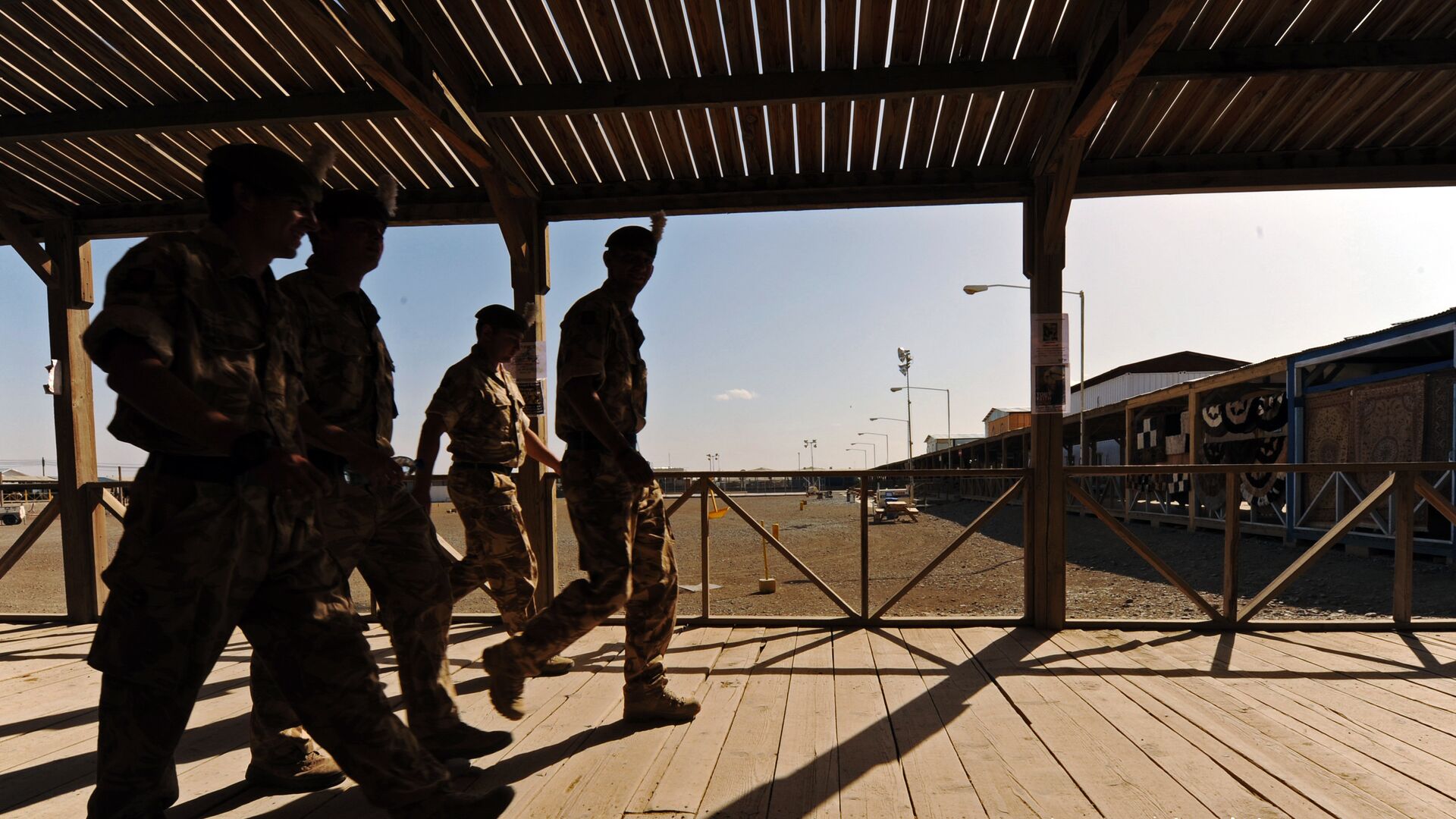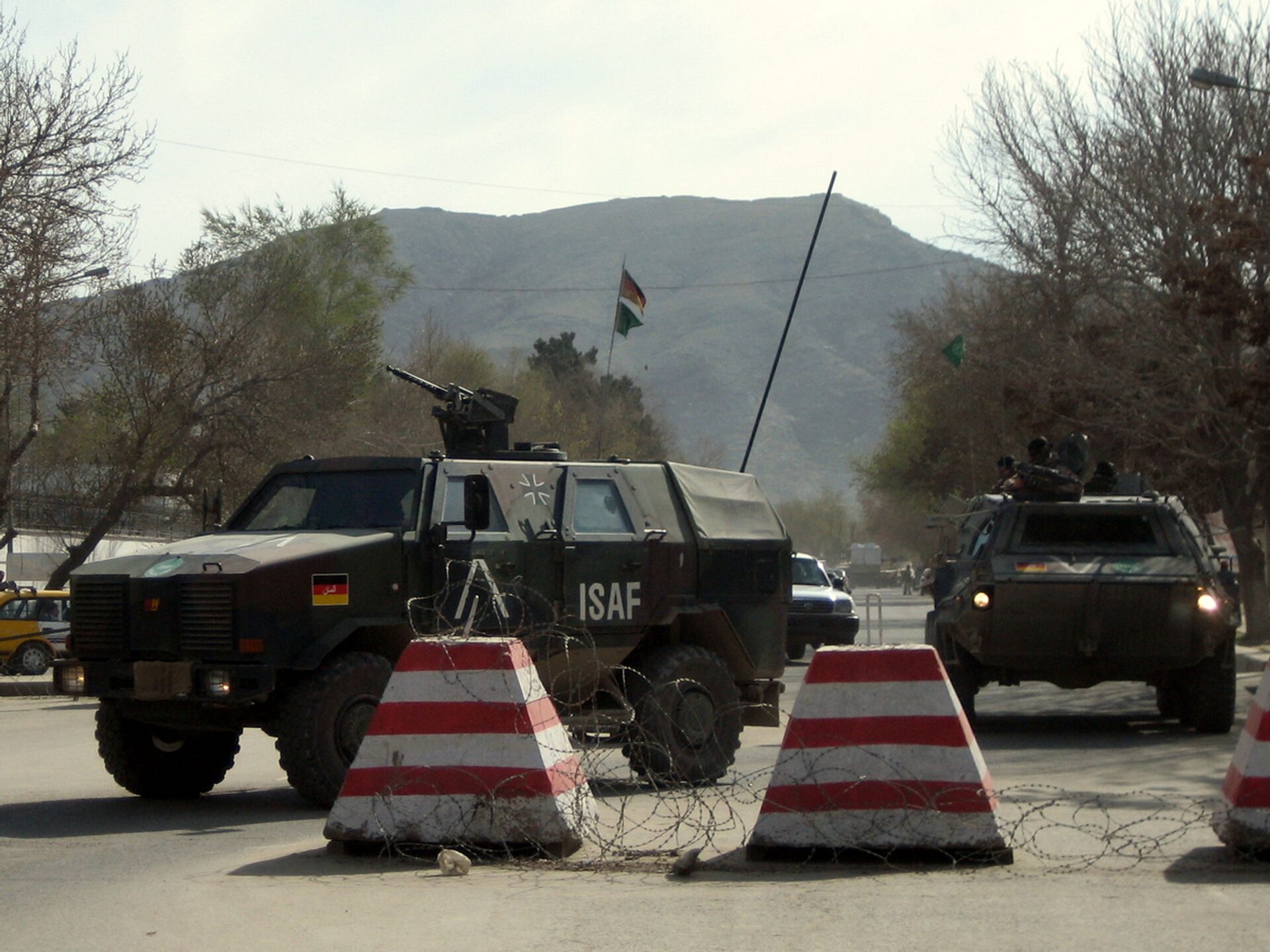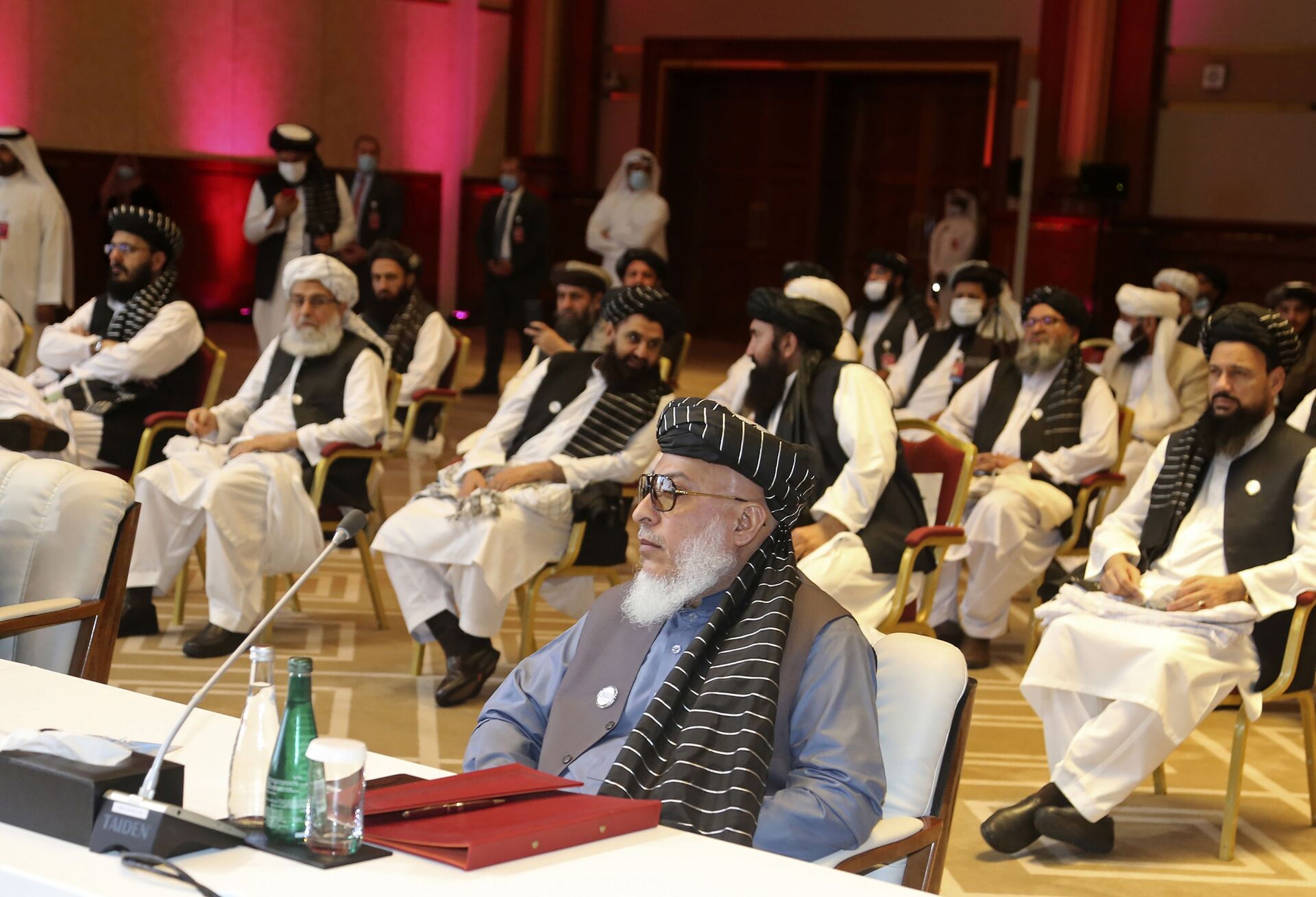'Getting to a Crunch Point': UK Troops Will Reportedly Wrap Up Afghanistan Pullout 'Within Days'
11:54 GMT 01.07.2021 (Updated: 15:14 GMT 28.05.2023)

© AFP 2023 / TAUSEEF MUSTAFA
Subscribe
The UK has been drawing down the presence of its military personnel as part of the NATO mission in Afghanistan after US President Joe Biden announced American troops would be pulled out by 11 September - the 20th anniversary of the al-Qaeda* attacks on his country that prompted the US-led intervention in the first place.
British troops will be pulling out of Afghanistan “within days”, according to UK defence sources, with no precise details released yet due to security reasons, reported the Daily Mail.
Over 200 Black Watch soldiers of the 3rd Battalion, the Royal Regiment of Scotland, will fly home in the next few days, wrapping up the UK’s 20-year deployment to Afghanistan, says the outlet.
A flag-lowering ceremony, typically used to mark the end of such a deployment, will also reportedly be held alongside US forces to honour the 456 British troops who have died in the country since the start of the campaign.
Up until now, no official images have yet been released of any flag-lowering ceremonies. The Ministry of Defence (MoD) on Friday released a statement and photographs about the return of a detachment of three Puma helicopters and 55 military personnel.
'Superb' RAF Puma Helicopter Detachment Leaves Afghanistan
— Carol Anne Grayson (@Quickieleaks) June 26, 2021
Three Puma helicopters and about 50 personnel serving in Afghanistan, from both 33 Squadron and 230 Squadron, have now returned to the UK from Kabul.#Afghanistanhttps://t.co/gfeEL32c8k
Prime Minister Boris Johnson is expected to chair a National Security Council meeting on Monday as reports claim British special forces could retain a presence in Afghanistan. A small number of regular troops may also be required to stay on in the country, according to UK media, citing Whitehall sources, to keep an embassy open.
"We are getting to a crunch point," a source was cited by Sky News as saying.
Other NATO allies are also carrying out departures. Thus, on Tuesday, Germany officially removed its last remaining service members from Afghanistan, with the troop removal declared by both German Defense Minister Annegret Kramp-Karrenbauer and the Bundeswehr, Germany's unified armed forces.

German troops operating in Afghanistan
© RIA Novosti . Andrei Greshnov
The announcement was followed by Italy and Poland that declared their military missions in Afghanistan.
The current report comes as the US has been picking up the pace in its troop withdrawal. The process, initiated by President Joe Biden in April when he ordered the military to leave by 11 September, is likely to end by Independence Day, 4 July, according to American media outlets citing multiple US officials.
In the wake of the formal withdrawal, as many as 1,000 US troops could stay on to assist in securing the US Embassy in Kabul and the city's airport, a senior administration official was cited as saying by CNN.
The number of American troops for embassy protection and airport security, however, would not exceed 650, it was added.
"This week could be a critical week in the withdrawal and end of the retrograde process," another defence official suggested.
Amid announcements of low-key withdrawal from Afghanistan by NATO members, the Taliban* group (outlawed in Russia) has been availing itself of an opportunity to take control of swathes of territory. US intelligence assessments have claimed the country's civilian government could fall to Taliban within months of US forces withdrawal, with a civil war breaking out.
"Civil war is certainly a path that can be visualised. That should be a concern for the world," top US general Austin Scott Miller was cited as saying in a New York Times interview.
As he acknowledged that “It's going to be very difficult," President Joe Biden said on Friday during a meeting with visiting Afghan President Ashraf Ghani that “support for Afghanistan is not ending." However, he stressed it was up to Afghans to decide "what they want".
Longest War in US History
The US intervention in Afghanistan started in October 2001 after the Taliban refused to hand over Osama bin Laden, seen by Washington as the mastermind of the 9/11 attacks against the US. However, soon the US found itself mired in a “never-ending war”.

In this Sept. 12, 2020, file photo, Taliban negotiator Abbas Stanikzai, center front, and his delegation attend the opening session of peace talks between the Afghan government and the Taliban, in Doha, Qatar. Afghanistan’s Taliban on Thursday, Oct. 8, 2020, welcomed a tweet from President Donald Trump in which he promised to have the last of the U.S.'s troops out of Afghanistan by Christmas. If that withdrawal happens, it would be months ahead of schedule and the tweet made no reference to a Taliban promise to fight terrorist groups — a previous pre-requisite for an American withdrawal.
© AP Photo / Hussein Sayed
The administration of then-President Donald Trump initiated peace talks with the Taliban in 2019. Under the agreement, Washington vowed to complete a full withdrawal by 1 May 2021. In exchange, the group was obligated to cease military activities and engage in intra-Afghan talks with the country's government.
US President Joe Biden moved the deadline to 11 September 2021, announcing the decision in April this year.
*The Taliban and al-Qaeda are terrorist groups outlawed in Russia and other countries.

